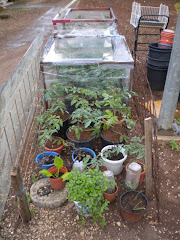Living in a Kvutza is awesome, and with about four weeks left, it is starting to become the time of making my future plans for college and thinking about what it is exactly I want to do with my life. Somethings I really enjoy about this life style are the relationships always present around me, the sense of a collective, and a constant urge to improve Israeli society. In most places in the world, every day there are certain motions gone through which seem normal and fitting. Specific structures are the norm, and daily habits are rarely though of being changed, questioned, or challenged, and when those actions are taken, they are rarely heard about, seeing as they are so against the norm, and on such a small scale. During this Peula, we talked about what it means to be a rebel. A rebel could rebel in a variety of ways. For example, I feel that in a world it where it is hard to avoid individualism and unavoidable competition, the lifestyle that I lived the past few months has presented structures where by living as a collective with shared money among many other things, it is possible to rebel against those things present in society. Or, on another hand, a rebel could be a child in class causing trouble because he feels no connection to the material. More examples and a better understanding will come up soon:
Lets look at something cool.
The Rebel: Albert Camus.
What is a rebel? A man who says no: but whose refusal does not imply a renunciation. He is also a man who says yes as soon as he begins to think for himself. A slave who has taken orders all of his life suddenly decides that he cannot obey some new command. What does he mean by saying "no"?
He means, for instance, that "this has been going on too long", "so far but no farther","you are going too far', or again "There are certain limits beyond which you shall not go." In other words, his "no" affirms the existence of a borderline. You find the same conception in the rebel's opinion that the other person is "exaggerating", that he is exerting his authority beyond a limit where he infringes upon the rights of others. He rebels because he categorically refuses to submit to conditions that he considers intolerable and also because he is confusedly convinced that his position is justified. It is in this way that the rebel slave says yes and no at the same time. He affirms that there are limits and also that he suspects-and wishes to preserve-the existence of certain things beyond those limits. He stubbornly insists that there are certain things in him which are "worth while..." and which must be taken into consideration.
In every act of rebellion, the man concerned experiences not only a feeling of revulsion at the infringement of his rights, but also a complete and spontaneous loyalty to certain aspects of himself. Thus, he implicitly brings into play a standard of values so far from being false that he is willing to preserve them at all costs. Up to this point he has, at least, kept quiet and, in despair has accepted a condition to which he submits even though he considers it unjust. To keep quiet is to allow yourself to believe that you have no opinions, that you want nothing, and in certain cases it amounts to really wanting nothing. Despair, like absurdism, prefers to consider everything in general and nothing in particular. Silence expresses this attitude very satisfactorily. But from the moment that the rebel finds his voice-even though he has nothing to say but no-he begins to consider things in particular. In the etymological sense, the rebel is a turncoat. He acted under the lash of his master's whip. Suddenly, he turns and faces him. He chooses what is preferable to what is not. Not every value leads to rebellion, but every rebellion tacitly invokes a value. Or is i really a question of values?
An awakening of consciesness, no matter how confused it may be, develops from any act of rebellion and is represented by the sudden realization that something exists with which the rebel can identify himself-even if only for a moment. Up to now this identification was never fully realized. Previous to his insurrection, the slave accepted all the demands made upon him. He even very often took orders, he baled. He was patient and though, perhaps, he protested inwardly, he was obviously more careful of his own immediate interests-in that he kept quiet-than aware of his own rights. But with loss of patience-with impatience -begins a reaction which can extend to everything that he accepted up to this moment, and which is almost always retroactive. Immediately the slave refuses to obey the humiliating orders of his master, he rejects the conditions of slavery. The act of rebellion carries him beyond the point reached by simply refusing. He exceeds the bounds that he established for his antagonist and demands that he should now be treated as an equal. What was, originally, an obstinate resistance on the part of the rebel, becomes personified. He proceeds to put self-respect above everything else and proclaims that it is preferable to life itself. It becomes, for him, the supreme blessing. Having previously been willing to compromise, the slave suddenly adopts an attitude of all or nothing. Knowledge is born and conscience is awakened.
__
Something this text really got me thinking about is how i associated the word "rebel" before, and how i associate it now.For a while i refferred to a rebel as someone who for the sake of causing a disturbance in a violent, or non violent way,for no particular reason does so, just for the sake of it. However, recently when I have though of a rebel, I have thought of rebeling for a purpose, and for the sake of a just cause, or even for the sake of freedoms that should be a given, but are not, such as the Dror, Hashomer Hatzair, and other movement members did in Warsaw. This text really made me think about things in a more unique way, and I definitely realize that rebelling, in a lot of situations is extremely neccessary.
Lets look at a few things he wrote. First, "What is a rebel? A man who says no:"..."He is also a man who says yes as soon as he begins to think for himself."
-Again, we can even look at third level oppression. In some situations, one can be so oppressed, that they are not even aware of another reality. By saying "no" to the current and realizing whats going on, you can then say yes, and have freedom to do whatever you want, and the power to liberate yourself.
-As I talked about in the begining, there are certain norms in the world today, and to some those norms could limit the intention to create a different society. By Simply having the power to say no, we can create a cool reality! Weather it be alcohol, social hierarchy within the community of my chanichim, or one choosing that they want to pursue something else with their life by not going to the army, or by not going directly to school. We have the power!
-Ok, here is another thing i really liked about this one. Kind of like how the text began, he now brings up that one moment where one realizes that they deserve to be an equal, and I think he says it pretty well.
"The man concerned experiences not only a feeling of revulsion at the infringement of his rights, but also a complete and spontaneous loyalty to certain aspects of himself. Thus, he implicitly brings into play a standard of values so far from being false that he is willing to preserve them at all costs."
What does he mean by bringing in a standard of values so far from being false? Well, to me, there are certain values that I feel should be a code of all people, such as shivyon erech haadam, and perhaps it is at this moment, where the rebel realizes what that really means, along with the fact that this value has been absent in his life, and now that he realizes it, he will do all that he can to stand up for that value, seeing as that person by no means should not be an equal.
-Alrighty, here is another thing.
"Not every value leads to rebellion, but every rebellion tacticaly invokes a value. Or is it really a question of values?"
This is a good question: What is the reason for rebellion? and from where does that rebellion stem? Is it that a value, for example equality, is the reason for rebellion? or does every rebelion tactically invoke a value?
Every value is importnat. The way i see it is that rebellion is the manifestation (I dont know if that is the word im looking for...)of certain values coming together in order to create this rebellion.
This lead to a cool sicha about things that we value, and if it is neccessary to rebel against society to make these values more prevelant in our lives. Things like the way the economic world works. Is that something that brings forth issues with what can be seen as equality? Is it worth rebelling against? How about the aclohol culture in teenagers? Is that in itself a rebelion? If so, is it neccessary to rebel against the rebellion? I think it all depends on what you value.
-Lets move on to the end:
"Knowledge is born and conscience is awakened."
This is how Camus finishes. It seems, that as a result of being so oppressed, within everyone there is a spark that is always going to stand up for what is right. When this knowledge he talks about is born, and conscience awakened, how does that get sparked, and what is the reason for it?
To me, it leads to the question of is all rebelion based on equality?
What other factors could there possibly be? Its hard for me to imagine anything as strong as that. Why dont you think about it, and discuss it with your friends!
I hope that you have to power to rebel for what you value!
-Erez.
Sending an Israeli Volunteer Task Force to Help Refugee Children of South
Sudan in Uganda
-
Following on from our previous connections with these refugee kids (eg
here), please support our efforts to continue working with our kids, now
that they a...
7 years ago






